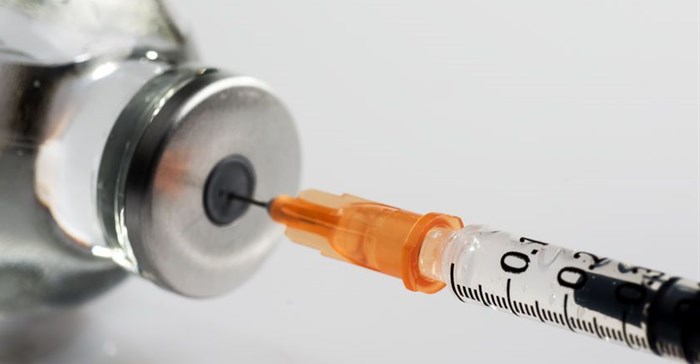Survey: 67% of South Africans favour vaccine
Sixty-seven percent of the adults surveyed said they would definitely or probably take a vaccine if it was available compared to the 18% who said they would definitely not or probably not take a vaccine, while 15% were undecided.
The survey was conducted online using social media adverts to direct potential participants to the survey and #datafree through biNu’s Moya Messenger app. It was completed by 10,618 participants. Findings were weighted by race, education and age, and are broadly representative of the population at large. The questionnaire was available in the country’s six most widely spoken languages.
The briefing demonstrates that race, education and age play a role in shaping vaccine acceptance. White adults were least “accepting” of a vaccine; 55% responding that they would take the vaccine compared to 69% of Black African adults, the researchers said.
Sixty-nine percent of men indicated that they would take the vaccine in comparison to 65% of women, even though researchers said this was based on a small number of responses.
“Acceptance among adults with less than matric-level education was 72%, compared with 59% for those with tertiary education.”
For those who were either unsure or against taking the jab, the most common explanations related to concerns about side-effects (25%) and overall effectiveness of the vaccine (18%).
Education needed around vaccines
Meanwhile, a majority of people said they needed more information.
Explanations related to conspiracy theories or the occult did not appear frequently, 7% and 4% respectively. In addition, the most common explanations that people gave for wanting to vaccinate were to protect oneself (29%), closely followed by the desire to protect others (25%).
Another notable finding was that those who expressed a willingness to sacrifice certain human rights to stop the spread of the virus were far more favourable towards vaccination than those opposed to sacrificing rights.
The HSRC’s Professor Narnia Bohler-Muller has called for education around vaccines and its rollout. “The analysis shows that vaccine hesitancy comes down to a range of legitimate concerns about a vaccine developed and rolled out in record time, as well as some distrust in the government and corporations. We need a vaccine literacy campaign that provides factual information that will sway the waverers."
Her colleague, UJ’s Professor Kate Alexander welcomed the findings. “It is excellent news that such a large and representative survey shows that 67% now want to take the vaccine. The biggest challenge is to make sure that the majority get what they want."
























